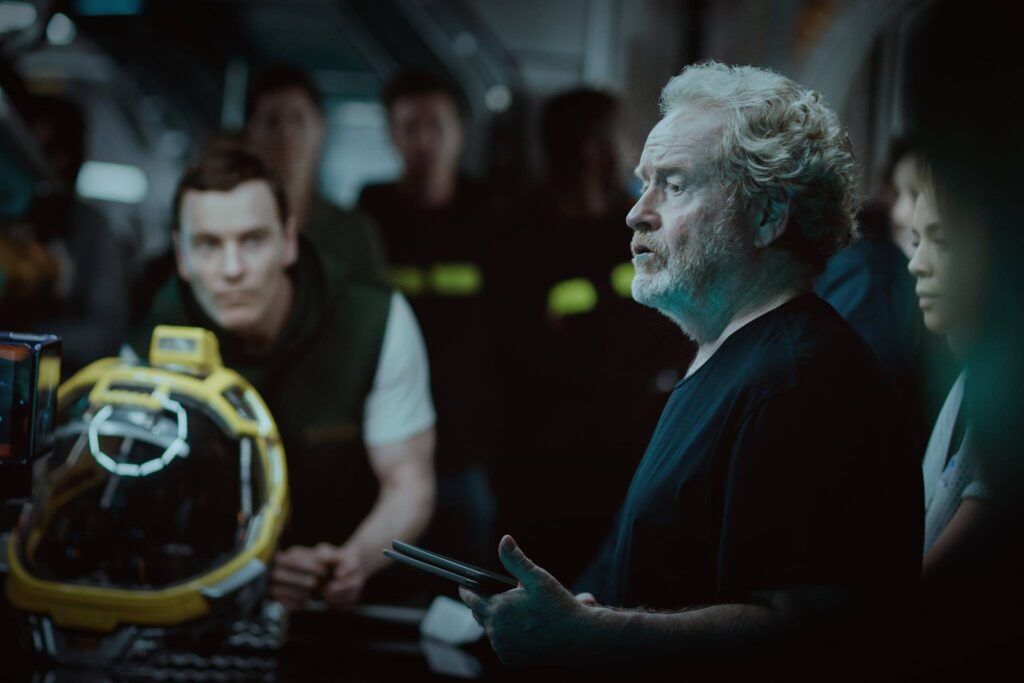In the Middle Ages, a squire would saddle a knight’s horse, care for his weapons and armor, and hoist his flag in battle. The majority of those tasks are beyond my abilities, but as a film critic, I’m proud to fly the banner of Sir Ridley Scott.
While I’ve often admonished moviegoers for taking Sir Ridley’s films for granted, I can hardly blame them. For years, like many of my fellow critics, I bought into the multi-pronged myth that Scott is a chilly technician long past his prime—and inferior to his chief acolytes, Christopher Nolan and Denis Villeneuve.
Those criticisms might evaporate if Scott made fewer films and stuck to his cinematic comfort zones (hardened epics, mystical sci-fi). But he is an artist who reinvents himself restlessly, spitting on suffocating notions of what it means to be an auteur director.
Scott is polyamorous in his genre preferences. In the 2010s alone, he directed three deep-space adventures, a biblical extravaganza, a thriller about the Gettys, a medieval romcom/bromance, and an existential gangster farce written by Cormac McCarthy—all of them alive with the energy of an artist more interested in experience than perfection.
It’s a joy to watch Scott zig and zag, though he never picks his projects at random. Persistent obsessions haunt his filmography: collisions of style and authority, men (and machines) raging against their creators, and the brutal choices forced upon women who wield immense power…or none at all.
These themes can be traced to Scott’s background in advertising, his agnostic fascination with religion, and his relationship with his formidable mother, Elizabeth Scott. The stories Scott tells are always personal, whether they are wrapped in the carnage of the Coliseum, the highways of the American West, or a future Los Angeles as gorgeous as it is grotesque.
Soon, we will see how Scott’s artistic fixations manifest in “Gladiator II,” which is his 29th film and is being released the week before his 87th birthday. Hopefully, the sequel will be a victory for Scott after the (unjust) critical drubbing he took last year for “Napoleon,” but at the very least, it gives us a reason to reexamine his gloriously zany career.
“Blade Runner” (1982) and “Thelma & Louise” (1991) are Sir Ridley’s most vibrant works, but it’s a mistake to stick solely to the Scott films enshrined as icons. To truly “get” him, you need to seek out his secret masterpieces—the stinkers that smelled rosy after a judicious director’s cut and the brazen oddities that practically begged to be unappreciated in their time.
Thus, I present my candidates for the seven most underrated films directed by Sir Ridley Scott. A list may seem a paltry tribute to a filmmaker who has spent nearly half of a century entertaining, enlightening, and delighting us. But a squire does what he can for a knight.
7. “A Good Year”
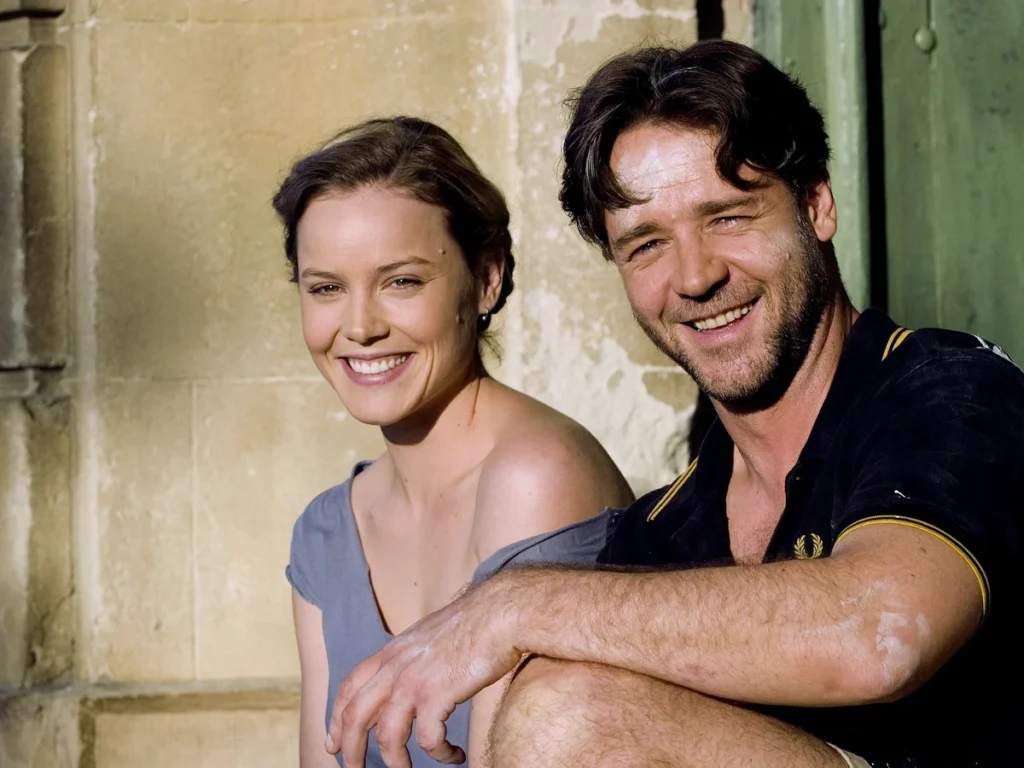
In addition to ruling the Ridley Scott Associates media empire, Scott owns Mas des Infermières, a winery in Provence. “I thought all the wine should be about health, fun, sex, dogs,” Scott told The New Yorker in 2023. “A Good Year” (2006) features all four.
Swapping his “Gladiator” sword for a business suit, Russell Crowe stars as Max Skinner, a ruthless London trader who is not healthy, not fun, not romantic, and not a dog owner. If only Max’s lovably grouchy Uncle Henry (Albert Finney) would bequeath him a vineyard in Provence to help rekindle the idealism of his youth…
I’m sure you’ll be shocked (shocked!) to learn that this is exactly what happens. Based on a quasi-autobiographical novel by Peter Mayle, “A Good Year” is a screwball romance that is both sheepishly self-conscious about and ferociously committed to its sentimental silliness.
“I can’t for the life of me think of why I stopped coming down here,” Max tells his new French paramour, Fanny (Marion Cotillard), on a blissful Provence night. “I love this place.” Soon after he speaks those words, a cleansing rainstorm descends on the couple, like a blessing from the gods.
At first glance, “A Good Year” appears to be a light interlude between Scott behemoths (he directed the film after “Kingdom of Heaven” and before “American Gangster”). It’s not an important film, but it’s moving because it’s clearly important to Scott.
Like Max, Scott got the winery; unlike Max, he rarely stops working. Despite Scott’s passion for Provence and all its soothing wonders, it’s hard to imagine him fully surrendering to them.
“After a few months of eating and drinking and sleeping and shagging, what have you got to look forward to? Boredom,” Max’s best friend, Charlie (Tom Hollander), insists. Max replies with a two-word answer that could be Scott’s own: “We’ll see.”
6. “Alien: Covenant”
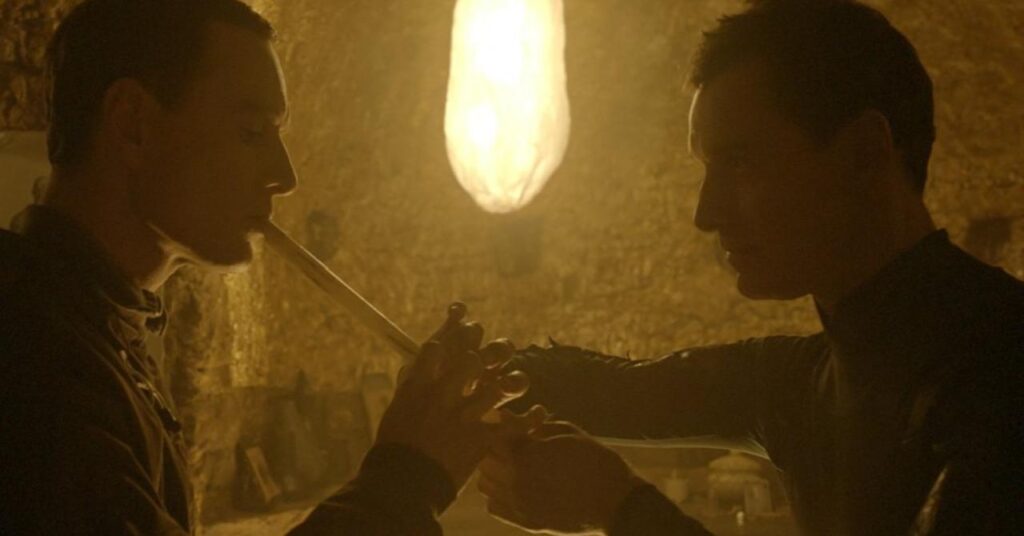
The most intriguing criticism of “Alien: Covenant” (2017) came not from a film critic, but from a filmmaker: James Cameron, normally the foremost Ridley Scott fanboy.
“I hope I’m not spoiling this for anybody, but I don’t like films where you invest in a character and they get destroyed at the end,” Cameron said in a Facebook Live interview in 2017. “So I would not have made that film.”
As a moviegoer who prefers the fiery humanism of Cameron’s “Aliens” (1986) to the austere sadism of Scott’s “Alien” films, I take Cameron’s point. Yet I still find it nastily amusing that “Covenant” tricks the humans in the audience into rooting for their own extinction.
“They are a dying species grasping for resurrection,” preaches the vengeful android David (Michael Fassbender), who first appeared in “Prometheus” (2012). “They don’t deserve to start again, and I’m not going to let them.”
There’s little in “Covenant” to contradict David. The film’s ostensible heroes—a crew of colonists aboard the spaceship Covenant voyaging toward a distant world—are an assortment of bullies, cowards, and morons who seemingly exist to prove their AI tormentor right.
The colonists are led by Oram (Billy Crudup), a freshly promoted captain who happens to be a devout Christian. “They don’t trust me,” Oram whines, “because you can’t be a person of faith and be counted on to make qualified, rational decisions.” Given that Oram allows most of his crew to be slaughtered by rampaging aliens, his argument doesn’t carry much weight.
Oram’s second-in-command, Daniels (Katherine Waterston), is more trustworthy, but she also opens fire on a xenomorph and roars, “Die, fucker!” As vile as the beasts are, it’s hard to cheer their decimation after we’ve watched David tame them with his implacable gaze.
The film’s contempt for the colonists is equaled only by its obsession with David, whose vanity and tyranny are more recognizably human than anything else in the film (including the tears Daniels mechanically sheds for her dead husband, played in flashback by James Franco).
Treating robots as people and people as robots, Scott mirrors his idol, Stanley Kubrick, who shifted our empathy toward the artificial in “2001: A Space Odyssey” (1968). “2001,” however, ended in dazed awe, whereas “Covenant” concludes with a twisted flourish: Daniels falling into cryosleep just as she realizes that David has taken command of the Covenant.
“Don’t let the bedbugs bite,” he says with a sinister smile. Revenge, it turns out, is a dish best served robotic.
5. “Black Rain”
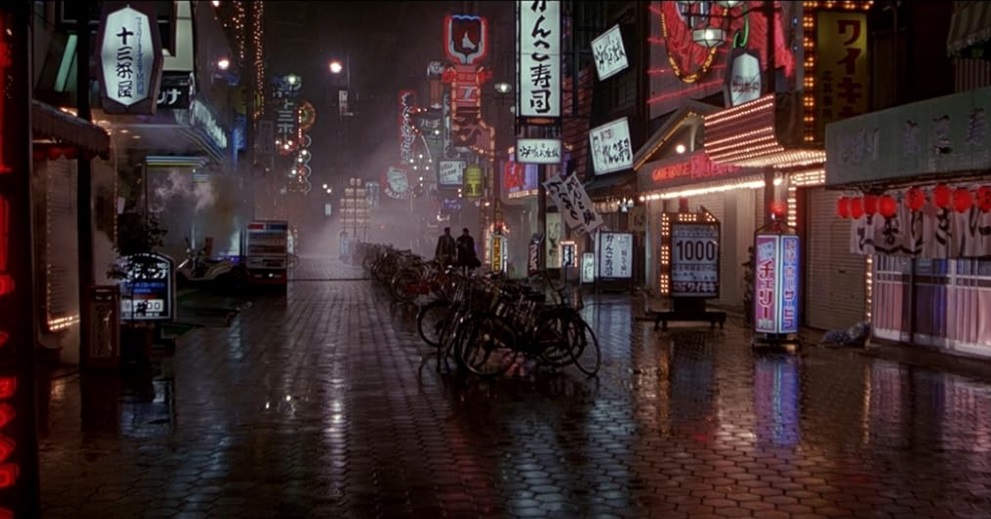
NYPD hotshot Nick Conklin (Michael Douglas) has one job: ferry Yakuza boss Sato (Yûsaku Matsuda) to the proper authorities in Osaka. Instead, Nick accidentally hands Sato back to the Yakuza, shoots countless locals with an illegal firearm, and proves so inept with his chopsticks that a sympathetic server has to intervene.
Welcome to the world of “Black Rain” (1989), where American imperialism and incompetence run amok. Don’t expect geopolitical sophistication in a film about Michael Douglas trying to tame the Japanese underworld with a motorcycle and a mullet—but do expect the most luridly entertaining film from Scott’s self-described “normal” era.
After the domestic (in multiple senses) police procedural “Someone to Watch Over Me” (1987), “Black Rain” sees Scott sharpening a prosaic script with atmospheric texture. Scouring the streets of Osaka for Sato, Nick finds himself immersed in a beautifully grimy labyrinth of neon, rain, and smokestacks, with local cop Masahiro (Ken Takakura) as his babysitter.
Two years later, Scott would capture the romance of female friendship in “Thelma & Louise,” but “Black Rain” is all about the bonds between men on the job—or off, as when Masahiro joins Nick’s partner, Charlie (Andy Garcia), for an impromptu performance of Ray Charles’ “What’d I Say” at a sprawling karaoke bar.
“Music and movies are all America is good for,” Masahiro warns Nick. “We make the machines, we build the future, we won the peace.” With all its flamboyant bloodshed, “Black Rain” can’t offer much in the way of peace. Yet despite their differences (and the post-World War II subtext), the film’s mismatched characters achieve an unexpected truce through searching and singing.
Turns out that amid gang wars, life goes on. And even when Scott is striving for normalcy, he can’t resist the perfectly human strangeness of Charlie and Masahiro, two men who barely speak the same language, bonding over their love for the Genius of Soul.
4. “The Counselor” (Director’s Cut)
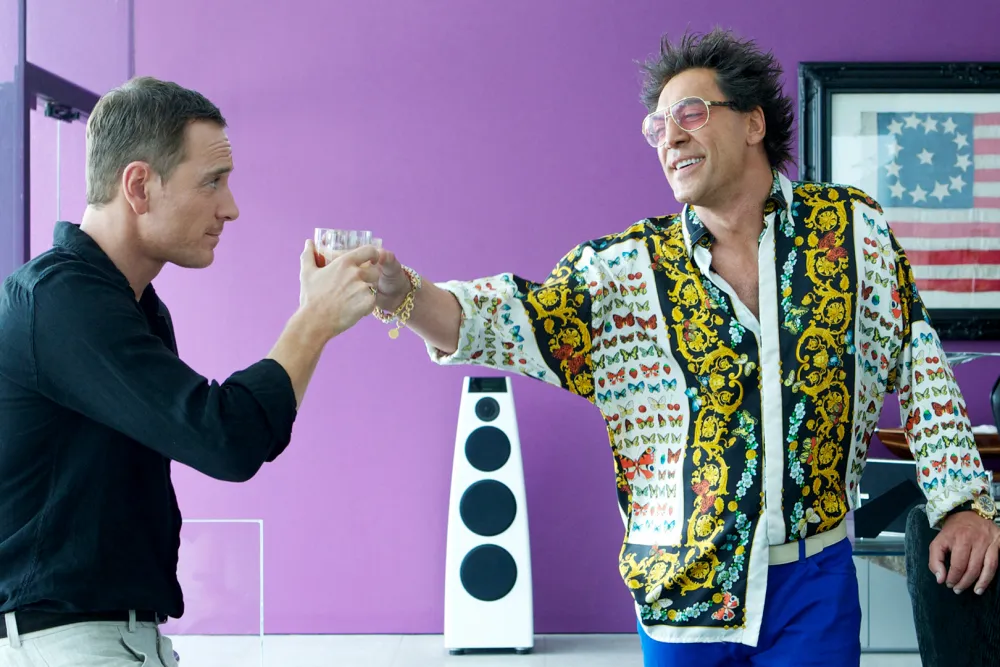
Midway through “The Counselor” (2013), a motorcyclist named the Green Hornet (Richard Cabral) carries a bag of dog food, despite claiming that he has no dog. He then chats with a complete stranger for several minutes, declaring that he lost 27 pounds by restricting himself to an all-kibble diet.
So sincere is the Green Hornet that we take him at his word. Until, that is, he goes home and feeds the dog food…to his dog. Apparently, he concocted the story of the canine diet to amuse himself—and, hopefully, us.
If you’re offended by movies with no interest in concepts like “realistic dialogue” and “moving the plot forward,” “The Counselor” will most definitely not amuse you. If, however, you thrill at the dismembering of cinematic convention, you may get a kick out of this highbrow trash tale of an idiotic Texas lawyer (Michael Fassbender) embroiled in an operatic drug war.
Written by Cormac McCarthy, “The Counselor” is a narrative skeleton encased in the muscle of bitter philosophy and poisonous wit. The nameless Counselor’s work is a matter of life and death, but McCarthy is more devoted to the script’s detours, from the historical ruminations of a diamond dealer (Bruno Ganz) to an R-rated romance between Cameron Diaz and a Ferrari.
Like Francis Ford Coppola’s “Megalopolis,” “The Counselor” keeps getting away with things it shouldn’t; it reminds us how conservative our notions of what cinema “should” be really are. “Mr. McCarthy appears to have never read a screenwriting manual in his life,” longtime Scott fan Manohla Dargis wrote in The New York Times. Either that or he read them all and chucked them in the garbage.
By nauseating coincidence, Scott was directing this tale of bloodshed and heartbreak in August 2012, when his brother, filmmaker Tony Scott, committed suicide. Ridley would dedicate the less-nihilistic “Exodus: Gods and Kings” (2014) to Tony, but “The Counselor” remains eerily tied to his loss, despite McCarthy’s dark merriment.
“A man would give entire nations to lift grief off his heart,” a reflective crime lord (Rubén Blades) tells the Counselor. “And yet you cannot buy anything with grief.”
3. “House of Gucci”
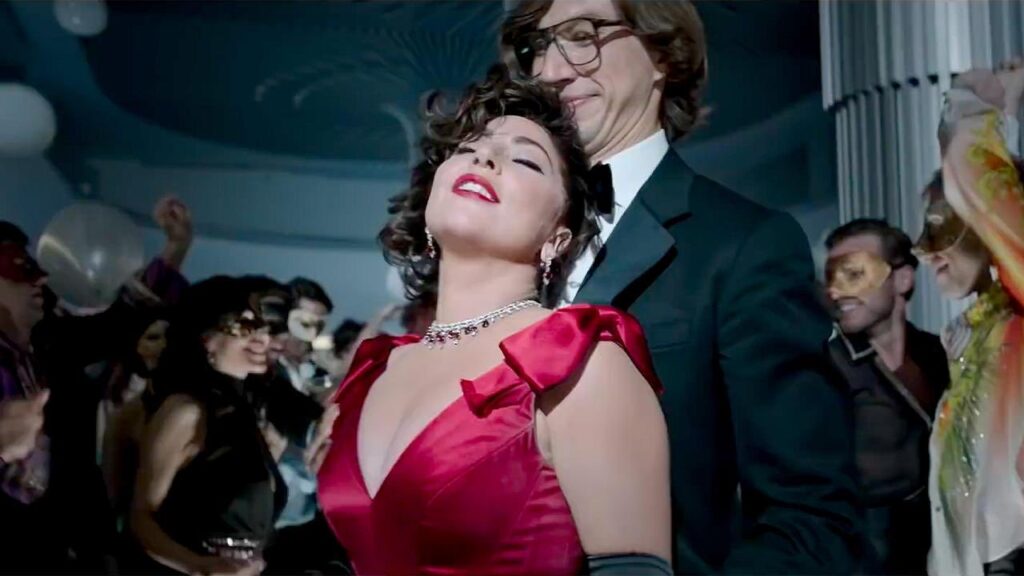
On March 27, 1995, Patrizia Reggiani wrote “paradeisos,” the Greek word for “paradise,” in her diary. That same day, her ex-husband, Maurizio Gucci, was shot dead by Benedetto Ceraulo, a pizzeria owner moonlighting as a hitman. It was not a coincidence.
It would be easy to portray the “Black Widow” of Gucci as the personification of demonic greed, but “easy” isn’t in Ridley Scott’s cinematic vocabulary. In “House of Gucci” (2021), Patrizia (Lady Gaga) is peculiarly lovable—stylish, passionate, insecure—until her dreams curdle into a metallic fury that can only be sated by the murder of her former lover.
“House of Gucci” could have been an abrasive rant against the evils of capitalism like Martin Scorsese’s “The Wolf of Wall Street” (2013), but that isn’t Scott’s style. Instead, he made a movie that is repelled by the decadence of the Guccis, yet attuned to their tragic humanity.
Patrizia and Maurizio first met at a debutante party in 1970, an event Scott depicts with lustrous flair. Maurizio (Adam Driver), dressed in a dowdy tux, shivers with unfulfilled desire; Patrizia, clad in a dark mask and a gleaming crimson dress, appears worldly, yet vulnerable in her hunger for Maurizio’s attention.
“I have to go,” Maurizio says. “It’s only midnight, Cinderella,” Patrizia replies. There is no question about who is the princess and who is the prince.
Despite the masculine bravado of his historical epics, Scott has never been afraid to toy with gender roles. When he shows Maurizio humbly stationed at an ironing board or being yanked into a bubble bath by Patrizia, the effect isn’t emasculating—it’s liberating, possibly for female and male moviegoers alike.
The end of “House of Gucci” is spoiled by the subtitle of the 2012 Sara Gay Forden book it adapts: “A True Story of Murder, Madness, Glamour, and Greed.” As the decades pass, Patrizia inflames her husband’s ambitions, only to recoil when he turns neglectful and cold.
“I had no idea I married a monster!” she moans. “You didn’t,” Maurizio says matter-of-factly. “You married a Gucci.”
“House of Gucci” pleased neither the surviving Guccis nor Tom Ford, who is embodied in the movie by Reeve Carney (a Broadway star who visibly relishes lines like “I see pole dancers flanking the runways!” and “I have to call my mother in Austin!”). But the film isn’t about the real Guccis or the real Ford. It’s about the idea of them.
That idea is what erodes Maurizio’s modesty and amplifies Patrizia’s rapacity, which defies the inevitability of imprisonment. And it’s what inspires Patrizia, when a judge addresses her as “Signora Reggiani” at her trial, to respond the only way she knows how: “You can call me Signora Gucci.”
2. “Kingdom of Heaven” (Director’s Cut)
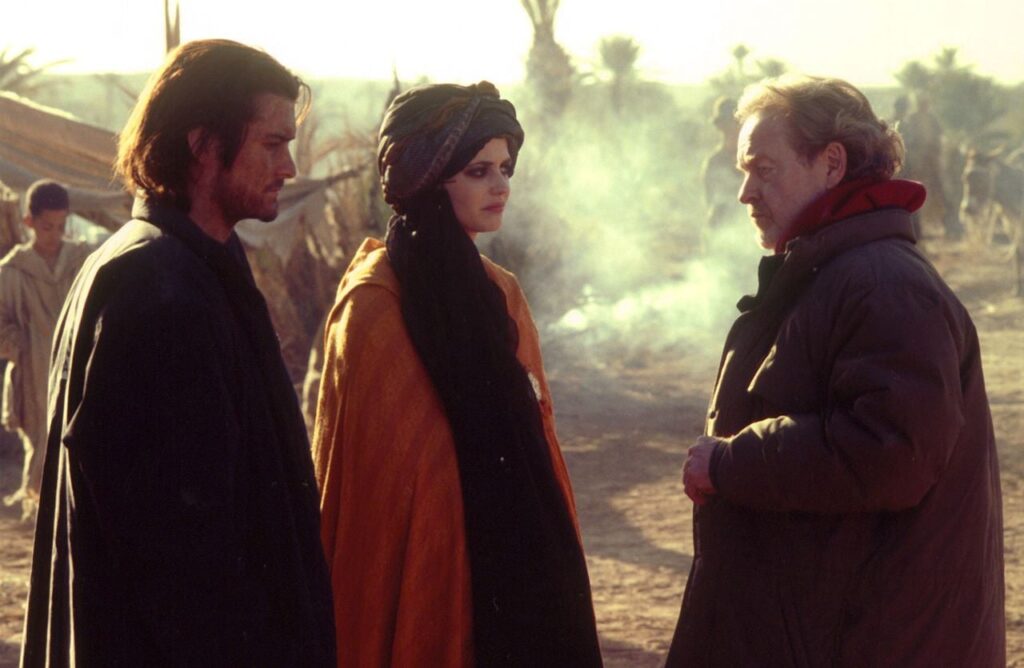
When “Kingdom of Heaven” premiered in 2005, Eva Green (who played Sibylla of Jerusalem) was only 23. But she wasn’t afraid to put Scott on blast when he sliced a subplot about Sibylla poisoning her dying son out of the film.
“I should never have removed it,” Scott confessed in an 2015 interview with DP/30: The Oral History of Hollywood while promoting “The Martian.” “She was cross, and she was right to be. I got an absolute ringing ear.”
Thankfully for Green (and Scott’s ear), the 194-minute director’s cut redeemed “Kingdom of Heaven” after a temporally compromised theatrical release. Seen as intended, the film blossoms into an expansive meditation on the futility of revenge, the difficulty of love, and the forces that divide goodness from faith.
“I’ve seen too much religion in the eyes of too many murderers,” the Hospitaler (David Thewlis) tells Balian (Orlando Bloom). “Holiness is in right action—and courage on behalf of those who cannot defend themselves.”
When “Kingdom of Heaven” begins, that courage is beyond Balian. While laboring as a blacksmith in 12th-century France, he savagely murders his brother (Michael Sheen), an ungodly priest who desecrates the grave of Balian’s wife by beheading her corpse.
“Is it true that in Jerusalem I can erase my sins?” Balian asks his father, the crusader Godfrey of Ibelin (Liam Neeson). “We can find out together!” Godfrey proclaims with gruff gusto. The crusade is on.
In Jerusalem, Balian is our watchful guide to a period of relative tranquility between Muslims and Christians. Yet even under the measured leadership of Saladin (Ghassan Massoud) and Baldwin IV (Edward Norton, mesmerizing behind a metal mask), reactionaries on both sides crave war.
And war does come. Dramatizing the 1187 siege of Jerusalem, Scott lets loose flocks of arrows, barrels of oil, and a haunting aerial view of armies writhing as day turns to night. Rarely has the sweeping pointlessness of battle been evoked with such poetic futility onscreen.
At times, it seems as if Scott is rebuking his Best Picture-winning “Gladiator” (2000). Unlike Russell Crowe’s enraged Maximus, Balian doesn’t seek righteous retribution; vengeance failed to quiet his spirit. All he has left is his newfound disdain for violence and his growing passion for Sibylla, a princess imbued with soulful sultriness by Green.
Written by William Monahan, “Kingdom of Heaven” is an ocean of historical fiction with waves of truth. A man named Balian did lead the defense of Jerusalem, but his story has been modified to suit the contours of the film, which is built as a tender romance as much as a hulking epic.
Manohla Dargis dismissed Sibylla as “a desperate housewife who appears to live in some kind of fabulous day spa” and criticized Green for bringing the film “perilously close to camp.” But I have a perilously high tolerance for camp (and, for that matter, Bloom’s dreamy brooding).
In the end, I suspect “Kingdom of Heaven” would be lead-footed without its sentimental flourishes. How do you find hope in a holy war? Sometimes, all it takes is a woman gently taking a man’s hand as they walk through the desert together, striding toward home.
1. “The Last Duel”
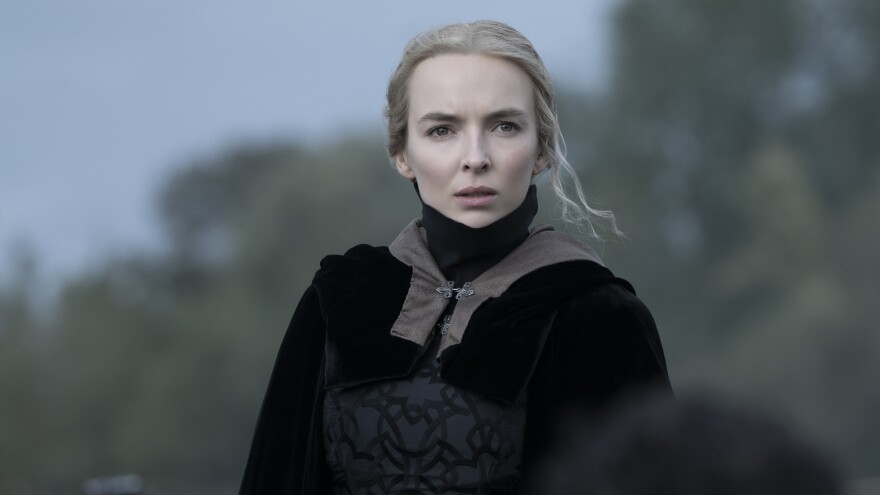
“The Last Duel” (2021) is told in three chapters: “The Truth According to Jean de Carrouges,” “The Truth According to Jacques le Gris,” and “The Truth According to the Lady Marguerite.” Yet as Marguerite’s side of the story begins, her name fades from the screen, leaving only two words: “The Truth.”
It’s a spoiler, but also a statement: that Ridley Scott (working here from a screenplay by Ben Affleck, Matt Damon, and Nicole Holofcener) doesn’t believe that the world is only as each individual perceives it. That somewhere in the swamp of subjectivity, there must be objective truth—and, therefore, objective justice.
Based on a 2004 nonfiction book by Eric Jager, “The Last Duel” chronicles one of the final judicial duels in medieval France: the December 1386 trial by combat between Jean de Carrouges (Damon), a Norman knight, and Jacques le Gris (Adam Driver), a squire accused of sexually assaulting Carrouges’ wife, Marguerite (Jodie Comer).
The combatants weren’t the only ones whose lives were at stake. If Carrouges triumphed, his victory would be hailed as holy evidence of Marguerite’s veracity; if he didn’t, she would be burned at the stake.
In the film, Carrouges insists, “God will not punish those who tell the truth,” but Marguerite sees the privilege and pomposity behind his words. “My fate and our child’s fate,” she declares, “will be written not by God’s will, but by which old man will tire first.”
The great coup of “The Last Duel” is that it exposes the chasm between who its characters are and who they imagine themselves to be. Is Carrouges a chivalrous knight, a buffoonish rival, or a brutish spouse? Is Le Gris a traitorous ally, a dashing womanizer, or a soulless predator? Is Marguerite a dutiful wife, a femme fatale, or a pre-#MeToo warrior?
Carrouges and Le Gris can’t truthfully answer those questions because they live in a society that indulges their fantasies, vanities, and insecurities. “The Last Duel” believes Marguerite not only because she is honest, but because patriarchal tyranny denies her the luxury of delusion.
It also denies her the kind of catharsis that past Scott heroines have experienced (think Ripley casting the xenomorph into the void in “Alien” or Thelma and Louise defiantly driving into the abyss). When Carrouges and Le Gris’ swords meet in a duet of steel and gore, Marguerite’s only choice is to watch and wait to see whether her foppish rapist or her abusive husband survives.
Ancient, violent spectacle comes easy to Scott—so when Carrouges and Le Gris clash, he tries something different. As blows are traded and blood is shed, he and editor Claire Simpson keep cutting back to Marguerite, putting our focus where it belongs.
In those moments, Marguerite is bearing witness to a contest that will arbitrarily decide her destiny. But great movies can magnify the power and presence of history’s watchers—and Marguerite’s unwavering gaze writes the story not only of a victim, but of how revolutions begin.

